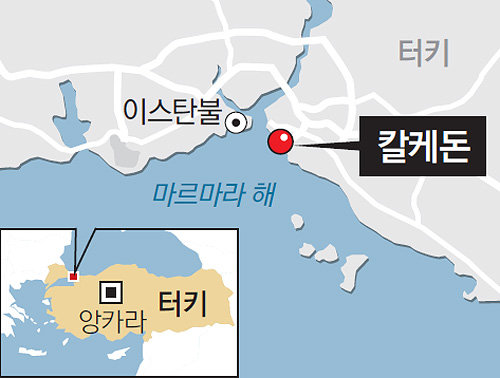The Politics of Phaleas
The Politics of Phaleas
Posted August. 04, 2020 07:44,
Updated August. 04, 2020 07:44

Greece was a small, arid land. By contrast, the Aegean Sea and Anatolia had many fine islands and fertile land. The Greek Polises selected a group of trail-blazers among citizens to make inroads into the new cities overseas.
Along the shore of Anatolia, one group of Greek pioneers discovered the entrance of a deep and narrow blue strait and built a city there. This is Chalcedon, a city standing on the outskirt of Istanbul now. Chalcedon was the hub of trade between the East and the West. Had the Greeks crossed the strait, they would have found the groundwork of Constantinople, which later earned the reputation as the world’s most fabulous city.
Chalcedon grew into a city of reputation, and the city gave birth to a politician named Phaleas. A detailed account about him is not available, but Aristotle’s “Politics” contains criticism about Phaleas’ vision for politics.
According to Aristotle, Phaleas argued that all citizens must have an equal amount of private wealth. Certainly an intriguing idea. Like Solon, Aristotle warned against the danger of a ruthless gap of wealth, rich people’s profligacy, and plutocracy. But he maintained that a monolithic standardization is meaningless.
This is a debate that is still ongoing, and this will be the case until the end of human history. According to Aristotle, Phaleas paid a meticulous attention to internal affairs such as tax, jurisdiction, or education, but had no opinion over external affairs or military strength.
Leaders who pursue forced equality take advantage of welfare as critical tool of leveling the ground for their people. The only hitch here is money. The massive amount of military costs will invariably jar. Cutting down on military budget for welfare will result in a bloated case of peace or the unwieldy title of a fanatic pacifist. Worse is yet to come. Riches will be scorned to be a demon, and the leader will enjoy the status of a Buddha or a Jesus to the eyes of enemies from outside. Unless you hit them first, they will never attack.
This journalist assumes that Phaleas must have been such a leader. But here is a warning from Aristotle. Policymakers must take into consideration the nation’s relations with all the neighboring countries and all foreign nations. The nation’s wealth must be ample enough to bolster domestic demand while staving off the dangers from the outside world. A pretense of peace calls for a real danger.
Headline News
- Med professors announce intention to leave hospitals starting Thursday
- Bridge honoring Sgt. Moon Jae-sik unveiled in Pennsylvania
- Chief of Staff Chung tells presidential secretaries to stay away from politics
- US FTC bans noncompete agreements
- N. Korea launches cyberattacks on S. Korea's defense companies







